Our List of 2021's Influencers in Aging
Meet this year's thought leaders, activists, entrepreneurs and experts changing how we think about aging

Here are brief descriptions of the honorees chosen by Next Avenue's editors to be our 2021 Influencers in Aging, why they were selected and their answers to these two questions: 1) If you could change one thing about aging in America, what would it be? 2) How has the COVID-19 pandemic changed your perspectives on aging? For more about the Influencers in Aging and the five trends they represent which shaped aging in the past year, read the articles "Taking on Aging," "Connecting the Generations," "Finding Work and Purpose," "Caregiving Champions" and "Reimagining Health Care." You can learn how Next Avenue picked our 2021 Influencers in Aging in "Our New Approach to Influencers in Aging for 2021."
Barbara Brooks and Guadalupe Hirt

Barbara Brooks and Guadalupe Hirt are co-founders of SecondActWomen, the Denver-based company they created in 2018 to "change the narrative" for 40-plus and 50-plus women eager to start businesses and pursue career opportunities. Brooks, 55, a marketing strategist and the company's chief executive officer, says she wanted to help launch SecondActWomen because she "aged out of the corporate club in middlescence." Hirt (who goes by Lupe), 48, is the business' chief commercial officer and comes from a PR background. In October, they ran the successful Biz+LifeCon, which they called "a pro-age work, life, money summit."
Atalaya Sergi
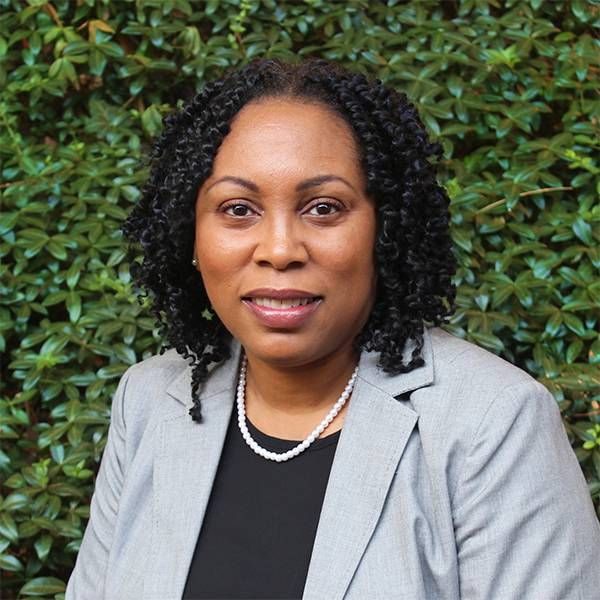
Atalaya Sergi is the newly appointed national director of the federal AmeriCorps Seniors program (part of AmeriCorps, the federal agency dedicated to national service and volunteerism) and its three flagship volunteer programs — Senior Companions, Foster Grandparents and RSVP. Nearly 200,000 older Americans serve their communities through AmeriCorps Seniors. Based in Washington, D.C., Sergi has performed vital work lately, as AmeriCorps Seniors is delivering $4 million in grants to engage older adults in service during the COVID-19 pandemic.
Trish Lopez
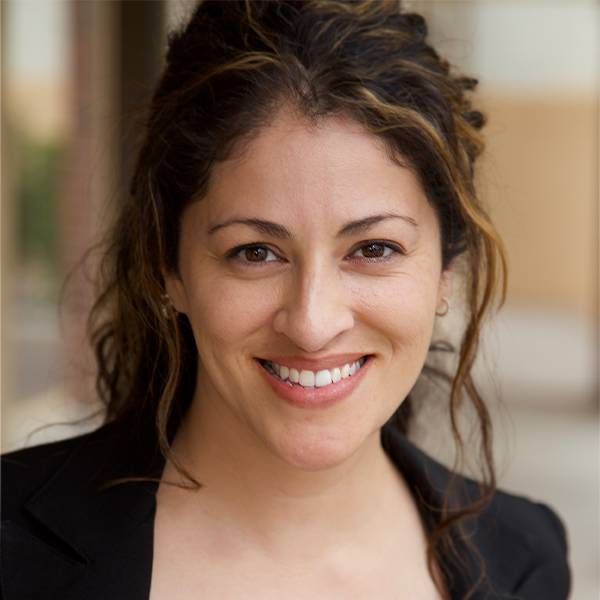
Trish Lopez is the founder of Teeniors, an organization launched in 2015 and based in Albuquerque, N.M., where teens and young adults teach older adults how to use and feel comfortable with technology. Topics address a wide range of needs: how to use a cell phone or computer; how to order groceries, pay bills or refill prescriptions online; how to send emails, texts and photos; how to use social media or Zoom and even how to make a podcast.
"Here's what I know for certain," said Lopez. "The main service we provide is not tech support, it's human connection."
Lopez is the recipient of several awards including the Women in Tech Award from the New Mexico Technology Council, the InnovateHER Award for "improving the lives of women and families" from the NM Small Business Association and the People's Choice Award from the Aging 2.0 Global Startup Search in Washington, D.C.
Joy Zhang and Madeline Dangerfield-Cha

Mon Ami was founded in 2018 by Joy Zhang and Madeline Dangerfield-Cha as a tech platform pairing college students from the San Francisco Bay Area (where the pair is based) with older adults; the young people offered caregiving respite and companionship.
In 2020, Mon Ami began forming partnerships with nonprofits and local governments that implemented Mon Ami's platform to better serve populations facing greater need due to the pandemic lockdown. Later that year, Mon Ami licensed its technology, along with its staff expertise, so the intergenerational program could be more widely replicated. To date, Mon Ami is in 12 states, including California, Oregon and Utah.
"It feels good to come to work every day knowing we are playing a part in ensuring a safety net for older adults," said Zhang.
Marta Kauffman
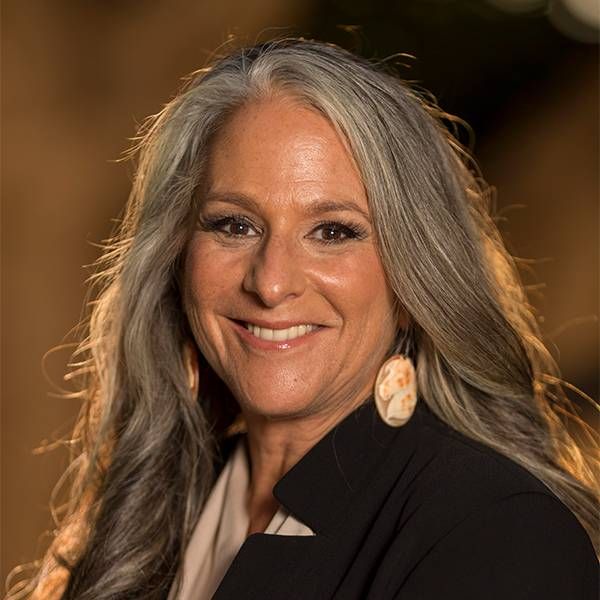
Marta Kauffman is an Emmy Award-winning writer and producer (for the hit TV series "Friends" and "Dream On") and co-creator of "Grace and Frankie," now in its seventh and final season on Netflix.
"Grace and Frankie" continues to tackle the topic of aging in ways that are at once comedic and brave. For example, Grace (Jane Fonda) and Frankie (Lily Tomlin) started a vibrator business (the "Ménage à Moi") in Season 3, and their latest enterprise in Season 7, the "Rise Up" toilet, attempts to solve an issue Grace is forced to confront.
Based in Los Angeles, Kauffman and her team have told stories ranging from the changing nature of relationships to discrimination, prostate cancer, hearing loss, addiction and loss of identity. But as Kauffman says, they've always been through the lens of aging.
The candid story arcs of "Grace and Frankie" have had an impact on viewers. "Older women say 'Thank you for acknowledging this. I thought it was just me,'" says Kauffman.
Tracy Viverretta
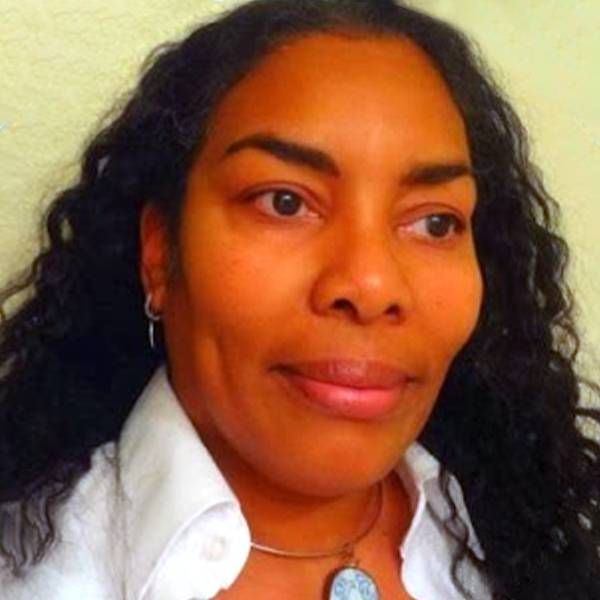
Artist and founder of Eff Their Aging Standards, Tracy Viverretta, is wielding her message in the fight against ageism with her distinctive black and white T-shirts, notebooks, tote bags and more, all available on her Instagram site, which currently has more than 5,000 followers.
A content creator who refers to herself as an "age positive Samaritan," Viverretta, who lives in Hartford, Conn., finds inspiration everywhere for the uplifting ideas she shares with her followers.
"We've been fed youth-centered messages, subliminally and overtly, for so long. Men are referred to as 'silver foxes' and women are just called 'old,'" she says. "We have ageism because people are ageist. There's so much work that needs to be done."
Dr. Justin Golub
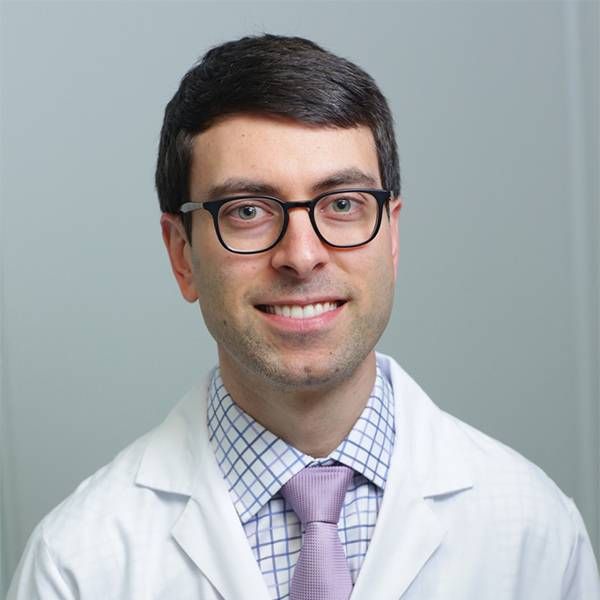
Dr. Justin Golub an an associate professor of otolaryngology/head and neck surgery at the Columbia University Vangelos College of Physicians and Surgeons, in New York City. "I take care of adults and children, but my interest is older adults, particularly age-related hearing loss," he says.
That's because when his younger patients come in with hearing loss, parents are supportive of treating it and insurance will often pay for their hearing aids. His older patients often face many more hurdles, especially when it comes to covering the costs associated with hearing aids.
"And it just doesn't make any sense. You have two different people that have the same condition and they get completely different treatments. That's sort of the definition of a disparity," says Golub. Despite the hurdles, Golub is optimistic. Over-the-counter hearing aids could soon be available and there is hope that Medicare could one day cover the costs of prescription hearing aids. "It would clearly improve quality of life, which is just about, or maybe more important than, length of life," he says.
Dr. Jen Gunter
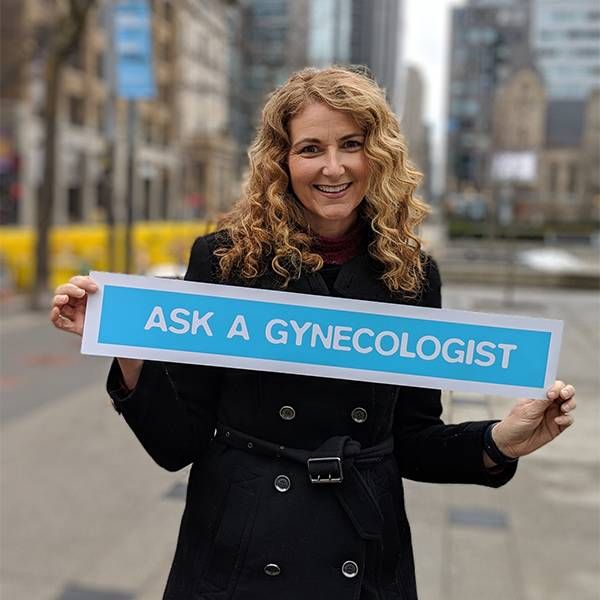
Dr. Jen Gunter is an internationally bestselling author, obstetrician and gynecologist with more than three decades of experience as a vulvar and vaginal diseases expert, practicing in the San Francisco Bay Area. Her latest New York Times bestseller, "The Menopause Manifesto," is a fascinating exploration of myths, misinformation and the misogyny surrounding menopause. She is also the author of "The Vagina Bible," a comprehensive guide about vaginal health in which she aims to clear up much of the confusion surrounding the vagina — turns out, there is a lot of it.
For Gunter, the work is about educating people about their bodies and hopefully removing the shame and judgment that shrouds vaginas. But to do that, she says, we need to rethink how we educate all people about their bodies. "We should have a comprehensive biology education," she says. "We should be teaching not only that puberty happens, but that menopause happens. And you know what, it's not a sign of failure."
Nii-Quartelai Quartey
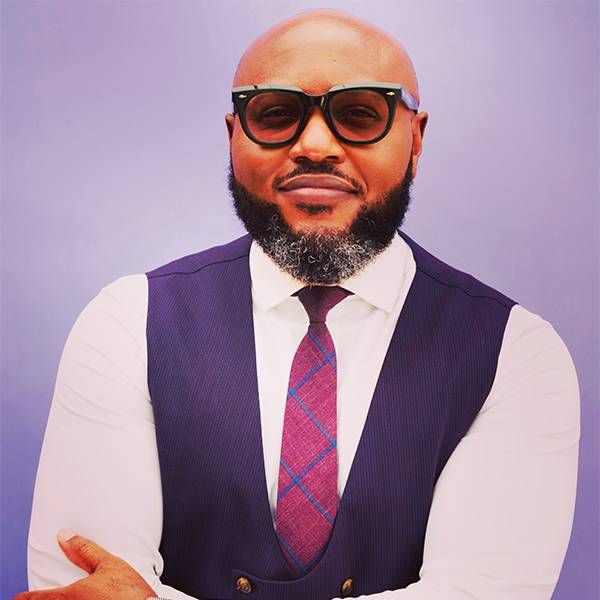
Nii-Quartelai Quartey served as AARP's senior adviser and National LGBTQ liaison, working in Washington, D.C., until November (he's now a guest lecturer at the Pepperdine University Graduate School of Education and Psychology). During the pandemic, he has been a voice for so many older LGBTQ+ Americans who were once again experiencing trauma stemming from the HIV/AIDS epidemic. Quartey, along with AARP, worked to ensure LGBTQ+ elders had access to accurate information about the COVID-19 vaccine. His work also honed in on issues of isolation and loneliness among this population.
Quartey envisions a world where longevity is viewed as a justice issue. He sees it as a movement that could transform how BIPOC and LGBTQ+ Americans age.
"And so from my perch, if you are LGBTQ, if you are like me and you are a Black, gay man, there are certain challenges over the course of one's lifetime that... can actually disable my ability to live a hundred year life," he says. "And so, my hope is that gerontologists and activists working across movements will begin to work together in ways that we haven't before to address longevity as a justice issue."
Pauline Boss
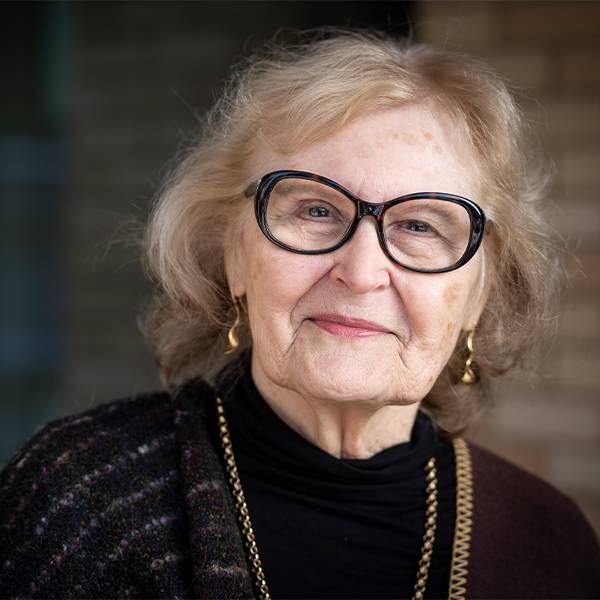
Pauline Boss is truly the boss when it comes to caregiving, grief and closure. She is a professor emeritus at the University of Minnesota and author of several books, including "Loving Someone Who Has Dementia" and the forthcoming and particularly pandemic timely "The Myth of Closure."
In the 1970s, Boss coined the phrase, "ambiguous loss," which describes a kind of complicated loss and can refer to a person who is missing either physically or psychologically. "Psychological ambiguous loss is usually caused by an illness or a condition that causes dementia or addiction," explains Boss, who is based in Minneapolis.
She writes in "Loving Someone Who Has Dementia" that with dementia's ambiguous loss, "Your loss is great, but there is no sympathy card; no one sits Shiva [a Jewish period of mourning after a death] or holds a wake. Instead, there is a lonely and oft-misunderstood mourning — a chronic sadness — with an indefinite beginning and indefinite end."
Boss' work is incredibly profound. She clearly articulates what so many caregivers feel and gives those of us who have experienced that kind of ambiguity the vocabulary and the reassurance to lean into the discomfort and tap into our resilience.
Dr. Jessica Zitter
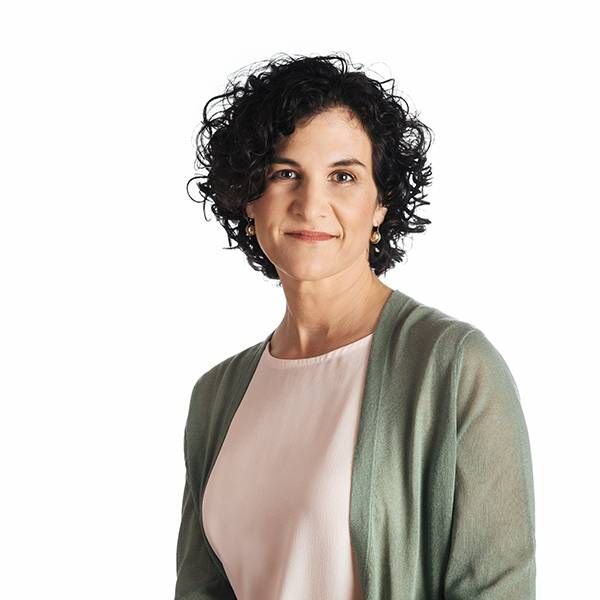
Dr. Jessica Zitter is one of those heart-centered physicians we all wish we had by our side when confronted with devastating health-related news. She offers compassion to the patient and empathy to the caregiver. And that is perhaps what sets Zitter, based in Northern California, apart: she refuses to medicalize the dying process, which can take weeks or months to unfold depending on the circumstances.
"We in the health care system need to be more aware of what's going on outside of the four walls of the hospital and prepare imminent caregivers for the marathon they are entering and connect them to the support that will help," she explains.
It's a radical way of thinking about the entire dying process. Zitter illustrated this in her latest documentary, "Caregiver: A Love Story," which followed one man as he struggles to care for his dying wife. (Next Avenue wrote about the film in "The Story Behind 'Caregiver: A Love Story.'")
Mary Daniel
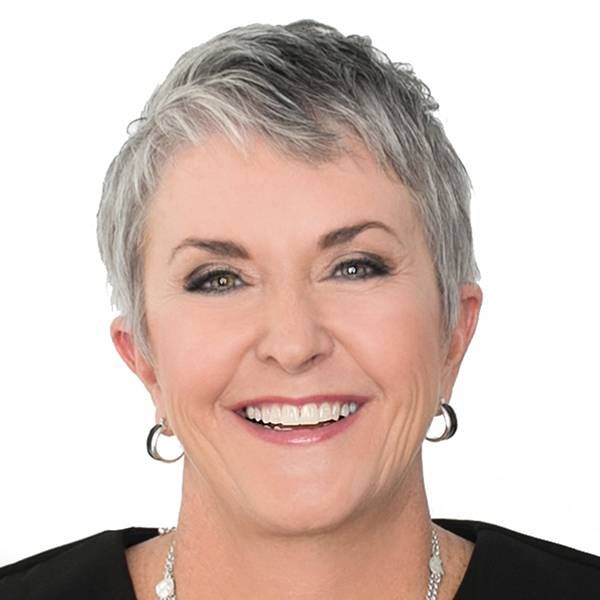
Mary Daniel is a fighter who keeps on going and is now inspiring an army of caregivers to do the same for their loved ones. After Daniel, based in Jacksonville, Fla., was unable to visit her husband Steve following the pandemic lockdown of long-term care facilities across the country, she found a way in. She took a job as a dishwasher at his facility. Since then, Daniel created a social media network, connecting caregivers from across the country.
Her group, Caregivers for Compromise, is so much more than a Facebook page. With roughly 14,000 people, Daniel is working at the national and state level to make sure family members are never prevented from visiting their loved ones again.

